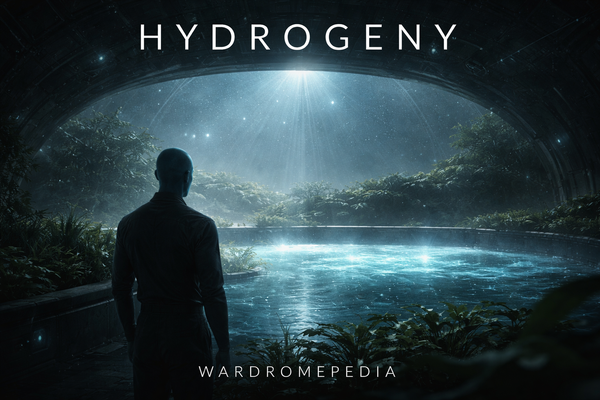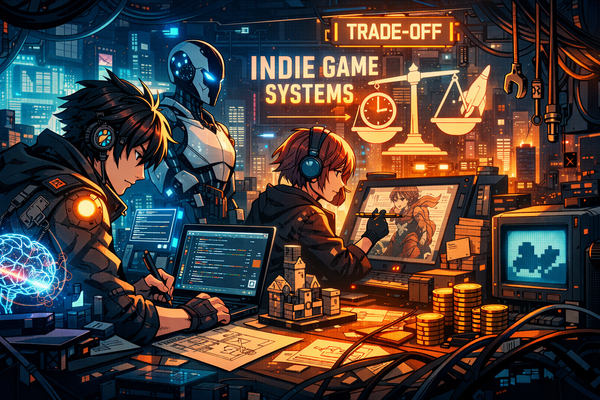Innovation is better than copying in indie game development
The temptation to replicate the success of popular titles is strong. Copying existing game mechanics, art styles, or narratives might seem like a straightforward path to achieving commercial success. However, this approach often leads to mediocrity, stagnation, and a lack of distinct identity. In contrast, innovation—embracing creativity and exploring new ideas—is the cornerstone of lasting success and influence in the gaming industry.
The limitations of copying
Copying successful games can seem like a safe bet, especially for indie developers working with limited resources and facing significant market pressure. By emulating what has already been proven to work, developers might hope to attract an audience that enjoyed the original game. However, this strategy is inherently flawed for several reasons.
Firstly, games that closely mimic others often fail to capture the unique qualities that made the original successful. What worked for one game may not translate well when transplanted into another context, especially when the copy lacks the same level of polish, innovation, or passion. Such games can come across as uninspired, leaving players with the impression that they are playing a lesser version of something they’ve already experienced(YouTube).
Secondly, the gaming market is saturated with options. Players are constantly on the lookout for new experiences, and games that merely replicate existing ones are less likely to stand out. In a sea of similar titles, innovation is what captures attention and keeps players engaged. Without a unique selling point, copied games often struggle to gain traction, quickly fading into obscurity(MoldStud).
Moreover, copying can harm a developer’s reputation. The gaming community values creativity and authenticity, and players are quick to recognize when a game is derivative. This can lead to negative reviews, poor word-of-mouth, and difficulty in building a loyal player base. Once a developer is associated with low-effort copies, it becomes harder to attract interest in future projects, no matter how original they might be.
The Power of innovation in indie games
Innovation, on the other hand, is the driving force behind some of the most successful and beloved indie games. By daring to explore uncharted territory, indie developers can create experiences that are not only unique but also deeply impactful. Innovation in game development can take many forms, from introducing new gameplay mechanics to crafting original narratives, or even experimenting with art styles and sound design that challenge industry norms.
For example, games like Braid and Undertale revolutionized their respective genres by introducing fresh gameplay mechanics and narrative techniques that had never been seen before. Braid played with time manipulation in ways that made players rethink how they approached puzzles, while Undertale subverted traditional RPG elements to create a game that was as much about the player's moral choices as it was about defeating enemies.
These innovations not only set these games apart but also had a broader impact on the industry. Braid inspired a wave of puzzle-platformers that experimented with time and space in new ways, while Undertale's success demonstrated that players were hungry for games that challenged their expectations and offered deeper, more emotionally resonant experiences(Bleeding Edge Studio).
The role of innovation in Long-Term success
Innovation is not just about making a splash; it's about building a foundation for long-term success. Games that innovate create new trends rather than follow existing ones, positioning themselves as leaders in the industry. This leadership can lead to critical acclaim, lasting player engagement, and even financial success that far surpasses what could be achieved by merely copying.
Moreover, innovation fosters a strong connection with players. When players encounter something genuinely new and exciting, they are more likely to become advocates for the game, sharing their experiences with others and helping to build a community around the game. This organic growth is far more sustainable than relying on marketing alone, as it is driven by genuine enthusiasm and word-of-mouth.
For indie developers, innovation is also a way to express their creative vision fully. Working independently allows developers to take risks that might be unfeasible in larger studios, where commercial considerations often take precedence over creative ones. This creative freedom is one of the greatest strengths of the indie game movement, leading to the development of games that are as diverse and varied as the people who create them.
Balancing innovation with market viability
While innovation is crucial, it must be balanced with an understanding of the market. Indie developers need to ensure that their innovative ideas are accessible and engaging to a broad audience. This involves iterative design, where developers continually refine their ideas based on player feedback, playtesting, and market research.
Iterative design allows developers to fine-tune their innovations, ensuring that they not only stand out but also resonate with players. By listening to player feedback and adjusting accordingly, developers can avoid the pitfalls of creating games that are too niche or difficult to understand. This balance between creativity and commercial viability is key to creating games that are both innovative and successful.
Innovation as a strategic imperative
In conclusion, while copying may offer a short-term path to market, it is innovation that truly drives long-term success in indie game development. By embracing creativity, taking risks, and pushing the boundaries of what games can be, indie developers can create titles that not only stand out in a crowded market but also have a lasting impact on the industry.
Innovation is not just a strategy; it is a mindset that values originality, player engagement, and the pursuit of new experiences. For indie developers, it is the key to building a lasting legacy in the gaming world.




